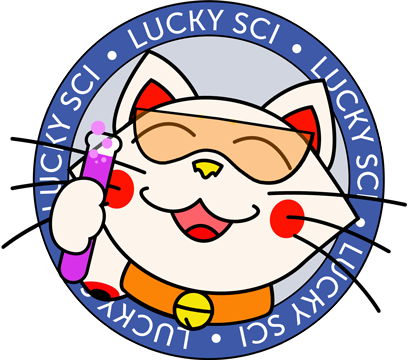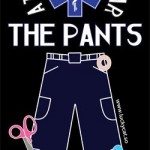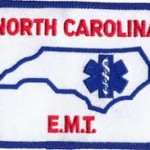Note: This entry was originally posted on a blog I created for my History of Medicine class final project during December 2012.
Doctors and nurses have lofty figures like Hippocrates and Florence Nightingale that they can point to as bastions of their fields, but as many medics lament, their field largely seems to lack famous names; instead, the field has as its media representation raunchy films like Mother, Jugs & Speed in the seventies and Paramedics in the eighties. Therefore, while visiting the Ernest Hemingway House in the Keys over Thanksgiving break this year, I was pleasantly surprised to learn on the guided tour that famous author served as an ambulance driver during World War I. You just don't get any better than Hemingway if you're wanting a culturally-respectable name to drop! (Although I'll admit that Hemingway's father was a physician.) Actually, I soon discovered that several literary figures served in that role during the war, including EE. Cummings.
The American Field Service and American Red Cross both ran volunteer ambulance services in Europe in World War I, although when the US entered the war in 1917, the former was rolled into the US Army Ambulance Corps.
Volunteering as an ambulance driver was actually a popular choice for upper class young men who wanted to take a part in the war, but either did not want to join the Army (which was beneath them or too dangerous) or who wanted to but were precluded due to health issues. In Hemingway's case, a poor left eye caused him problems. "I'll make it to Europe some way in spite of this optic. I can't let a show like this go on without getting into it," Hemingway explained to his sister.
Therefore, in 1918, Hemingway responded to the Red Cross's call for volunteers and found himself on the Italian Front in June, facing all of the atrocities of war to be had there, which would influence his writing for the rest of his life.
In his A Moveable Feast, an account of experiences in the war published posthumously, Hemingway briefly described the poor condition of the ambulances he drove (I've highlighted in bold the relevant part to facilitate easy identification, but I included the entire passage for context.)
It was when we had come back from Canada and were living in the Rue Notre Dame des Champs and Miss Stein and I were still good friends that Miss Stein made the remark about the lost generation. She had some ignition trouble with the old Model-T Ford she then drove and the young man who worked in the garage and had served in the last year of the war had not been adept, or perhaps had not broken the priority of other vehicles, in repairing Miss Stein's ford. Anyway he had not been serieux and had been corrected severely by the patron of the garage after Miss Stein's protest. The patron had said to him, "You are all a generation perdue."
"That's what you are. That's what you all are," Miss Stein said. "All of you young people who served in the war, you are a lost generation."
"Really?" I said.
"You are," she insisted. "You have no respect for anything. You drink yourselves to death..."
"Was the young mechanic drunk?" I asked.
"Of course not."
"Have you ever seen me drunk?"
"No, but your friends are drunk."
"I've been drunk," I said, "but I don't come here drunk."
"Of course not. I didn't say that."
"The boy's patron was probably drunk by eleven o'clock in the morning," I said. "That's why he makes such lovely phrases."
"Don't argue with me, Hemingway," Miss Stein said. "It does no good at all. You're all a lost generation, exactly as the garage keeper said."
Later when I wrote my first novel, I tried to balance Miss Stein's quotation from the garage keeper with one from Ecclesiastes. But that night walking home I thought about the boy in the garage and if he had ever been hauled in one of those vehicles when they were converted to ambulances. I remembered how they used to burn out their brakes going down the mountain roads with a full load of wounded and braking in low and finally using the reverse, and how the last ones were driven over the mountainside empty, so they could be replaced by big Fiats with a good h-shift and metal-to-metal brakes.
Besides driving on treacherous mountain roads, ambulance drivers were often trained in basic first aid (or higher) and their duties could include vehicle mechanical maintenance, cleaning and stocking medical supplies on the ambulance, and moving entire mobile hospitals from one location to another. Therefore, it's safe to assume that Hemingway had some degree of medical training, and given the frequency with which he would likely encounter injuries on the battlefronts, probably utilized this training at some point.
Hemingway's service was to be called short, however, when while delivering chocolates and cigarettes to soldiers on the front, he fell victim to mortar fire, sustaining severe injuries to both of his legs (Hemingway would keep a piece of the shrapnel retrieved from his body as a memento). He would write about the incident in Men at War:
When you go to war as a boy you have a great illusion of immortality. Other people get killed; not you... Then when you are badly wounded the first time you lose that illusion and you know it can happen to you. After being severely wounded two weeks before my nineteenth birthday I had a bad time until I figured out that nothing could happen to me that had not happened to all men before me. Whatever I had to do men had always done. If they had done it then I could do it too and the best thing was not to worry about it.
The injuries and the surgery needed to correct them left Hemingway in the hospital for six months, where he met and fell in
love with the American nurse Agnes von Kurowsky, to whom he became engaged. However, by the time Hemingway returned to the US, Agnes had become involved with an Italian officer, devastating Hemingway.
The plot of Hemingway's revered novel A Farewell to Arms, which takes place during World War I, contains striking similarities to his experience in the hospital. The main character, Lieutenant Frederic Henry of the Italian Army, is hospitalized after taking a mortar shell to the knee; there he falls in love with nurse Catherine Barkley. In the book, however, Barkley never abandons Henry; the two spend much time together and she even becomes pregnant, but ultimately she and the child die during labor.
Although most modern medics chaff at the phrase "ambulance driver", which they feel condescends on their medical training, and although Hemingway's role as an ambulance driver clearly did not focus on medical treatment, two facts make it possible for me to feel comfortable linking Hemingway's name to EMS. First, as I described earlier, Hemingway probably administered some form of basic first aid during his service; second, and more importantly, in the public's mind, "medic" and "ambulance driver" are often interchangeable terms. While this might seem like I'm reaching to make a moot point, I think it's worthwhile and necessary to give EMS workers a culturally relevant historical figure for their field. Hemingway's experiences as an ambulance driver in the war shaped his writings that would become celebrated in the US, so I don't think this is a stretch at all.
Most of the information in the post came from James Mellow's 1992 Hemingway: A Life Without Consequences, pages 45-60. When information came from other sources, I have linked to it in the relevant section. If you want to learn more about the upper class college-aged men who volunteered to drive ambulances during World War I, read Gentlemen Volunteers.
Bonus: What was it like to drive an ambulance in the war?
 C. de Florez was an ambulance driver in France during World War I, and No. 6 was the name of his ambulance (each ambulance in his section was numbered). He published No. 6, A Few Pages from the Diary of an Ambulance Driver, in 1918. Like many medics today, as a new recruit Florez was excited to see action, and he and his fellow drivers were initially disappointed by what started out as a slow run of service. However, later into the book, it's clear that some of his enthusiasm has faded; the last passage I included is particularly powerful. In fact, Florez faced many situations with which modern medics could commiserate, and I've titled the sections accordingly. Despite his eye-opening experience with the realities of battle, however, Florez remained hopeful throughout his book. He kept up to date with the war and recorded important events in his diary (with frequent insults hurled at the Germans). He also talked about enjoying dinner and drinks with his friends. You can download a copy of his diary here.
C. de Florez was an ambulance driver in France during World War I, and No. 6 was the name of his ambulance (each ambulance in his section was numbered). He published No. 6, A Few Pages from the Diary of an Ambulance Driver, in 1918. Like many medics today, as a new recruit Florez was excited to see action, and he and his fellow drivers were initially disappointed by what started out as a slow run of service. However, later into the book, it's clear that some of his enthusiasm has faded; the last passage I included is particularly powerful. In fact, Florez faced many situations with which modern medics could commiserate, and I've titled the sections accordingly. Despite his eye-opening experience with the realities of battle, however, Florez remained hopeful throughout his book. He kept up to date with the war and recorded important events in his diary (with frequent insults hurled at the Germans). He also talked about enjoying dinner and drinks with his friends. You can download a copy of his diary here.
Ambulances that have seen better days: "Today we received our cars and began the work of overhauling them. They have seen two years' service... Poor little Fiats, they are a bit tired. First of all, Mr. W. is taken off to the hose to be washed clean of mud, blood and cooties. We are not yet hardened and shuddered at the dark red spots on the brancards [stretchers], on the floor, even on the ceiling. God! how it must have spurted as she bumped in and out of the shell holes."
Fussy patients : "...wooden horses with a bucket beneath and a table beside with bottles of disinfectants and surgical instruments. We collect our two malades, tagged and labeled like so much luggage, and proceed through the usual crowd of filthy children in the direction of Pulligny where we take on two more; one of them a great Senegal black, who makes considerable fuss at having to leave his belongings and his rifle with the bayonet he loves so well. However, the thought of a ride in a very smart ambulance consoles him, and he shows his delight and a row of white teeth in a grin of satisfaction. Out of the four, three have been afflicted with the same horrible disease, the fourth has probably been saved by a badly fractured arm."
: "...wooden horses with a bucket beneath and a table beside with bottles of disinfectants and surgical instruments. We collect our two malades, tagged and labeled like so much luggage, and proceed through the usual crowd of filthy children in the direction of Pulligny where we take on two more; one of them a great Senegal black, who makes considerable fuss at having to leave his belongings and his rifle with the bayonet he loves so well. However, the thought of a ride in a very smart ambulance consoles him, and he shows his delight and a row of white teeth in a grin of satisfaction. Out of the four, three have been afflicted with the same horrible disease, the fourth has probably been saved by a badly fractured arm."
Sleeping on stretchers and late night calls:  "...sleep rolled up in a dirty blanket on a filthy stretcher, sleep and dreams of a world left behind. In the middle of the night a call came from St. Martin, where we arrived to find our friend the sergeant shot through the foot..."
"...sleep rolled up in a dirty blanket on a filthy stretcher, sleep and dreams of a world left behind. In the middle of the night a call came from St. Martin, where we arrived to find our friend the sergeant shot through the foot..."
The naive medic:  "At 5:40 a.m. an urgent call came for an ambulance, so we opened her up and raced off to Azerailles, a little town four kilometres away, where we collected a badly wounded fellow; fortunately he was unconscious and the bumps that break your heart when you have a groaning load of them meant nothing to him. We got him back to the hospital still alive but the knowing orderly shook his head and the good sister murmured a prayer, so I fear it was all for nothing."
"At 5:40 a.m. an urgent call came for an ambulance, so we opened her up and raced off to Azerailles, a little town four kilometres away, where we collected a badly wounded fellow; fortunately he was unconscious and the bumps that break your heart when you have a groaning load of them meant nothing to him. We got him back to the hospital still alive but the knowing orderly shook his head and the good sister murmured a prayer, so I fear it was all for nothing."
The jaded medic: "Sometimes you see them with four and five stripes; it means that four or five times they have been wounded, shot full of lead from a machine gun, hit by a hand grenade that rips you open or a piece of shell that tears a jagged hole in a belly to empty its entrails, to fall in a Hell-swept shell crater wondering if the end has come, praying that it has. To bleed and curse and thirst for hours, sometimes days; the agony of being moved with a mangled leg  or a shattered arm, to be carried on a back or a stretcher to a dressing station, to be dumped on a pile of straw to wait your turn; the torture of being patched up, then a hellish ride in an ambulance that jolts your heart out. Bloody, muddy, sticking bandages to be torn off and at last sleep, the brief merciful sleep of chloroform while they cut and burn and sew. Nights of fever and thirst, days of dressings and anguish, finally well. A few days of rest and back -- back for another stripe."
or a shattered arm, to be carried on a back or a stretcher to a dressing station, to be dumped on a pile of straw to wait your turn; the torture of being patched up, then a hellish ride in an ambulance that jolts your heart out. Bloody, muddy, sticking bandages to be torn off and at last sleep, the brief merciful sleep of chloroform while they cut and burn and sew. Nights of fever and thirst, days of dressings and anguish, finally well. A few days of rest and back -- back for another stripe."










